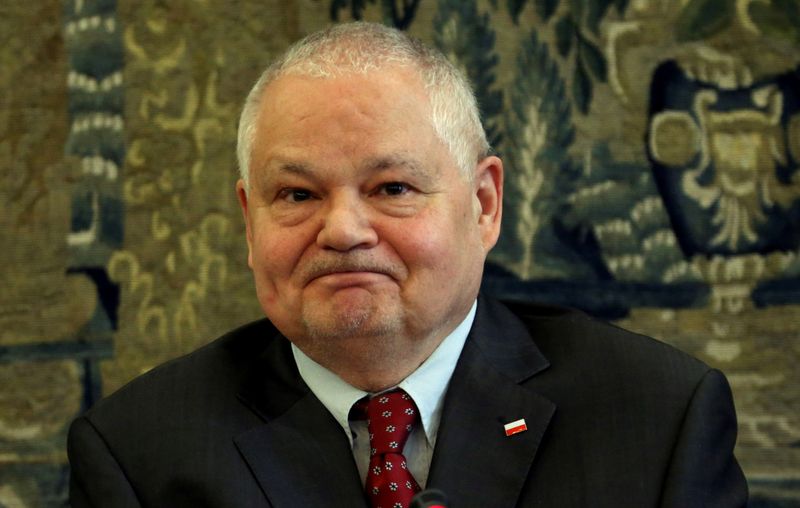WARSAW (Reuters) - Polish central bankers are weighing the scope of further rate hikes amid risks of an economic slowdown, with one rate-setter arguing future hikes should be smaller while another said rates should only rise by 25 basis points, if at all.
The National Bank of Poland (NBP) is assessing the threat of a slowdown caused by the war in Ukraine as inflation surges to its highest level in a quarter of a century, and Governor Adam Glapinski has said the tightening cycle is approaching its end.
Rate-setter Przemyslaw Litwiniuk was quoted on Tuesday by Business Insider as saying that the Monetary Policy Council must be aware of the risks of an economic slowdown or even a recession.
"Therefore, its next decisions should be made taking into account the rules of the medium-term transmission mechanism. Such an approach prompts the consideration of smaller-scale increases, but with the possibility of continuing the cycle at subsequent meetings this year."
The central bank raised its main interest rate by 50 bps to 6.50% in July. Its next rate-setting meeting is in September.
Another rate-setter, Ireneusz Dabrowski, said that if it depended on him, interest rates in Poland would be raised once more by 25 bps, if at all.
"In my opinion, if there are further rate hikes, they will be rather small - similar to the last one or even lower. If it was my decision only, I would not raise rates any more, or would raise them once at most by 25 basis points," Dabrowski told PAP Biznes news agency.
On Sunday, Glapinski was accosted by an activist from an organisation representing farmers during a day out at the seaside.
In mobile phone footage of the encounter on Sopot pier posted online, Glapinski told the activist that interest rates may be cut at the end of 2023, and that if there is further tightening it will be one 25-bps hike.

Litwiniuk, however, declined to specify what the peak of rates could be.
"At this stage, no target level for the reference rate can be assumed. This will also depend on the current parameters of fiscal policy."